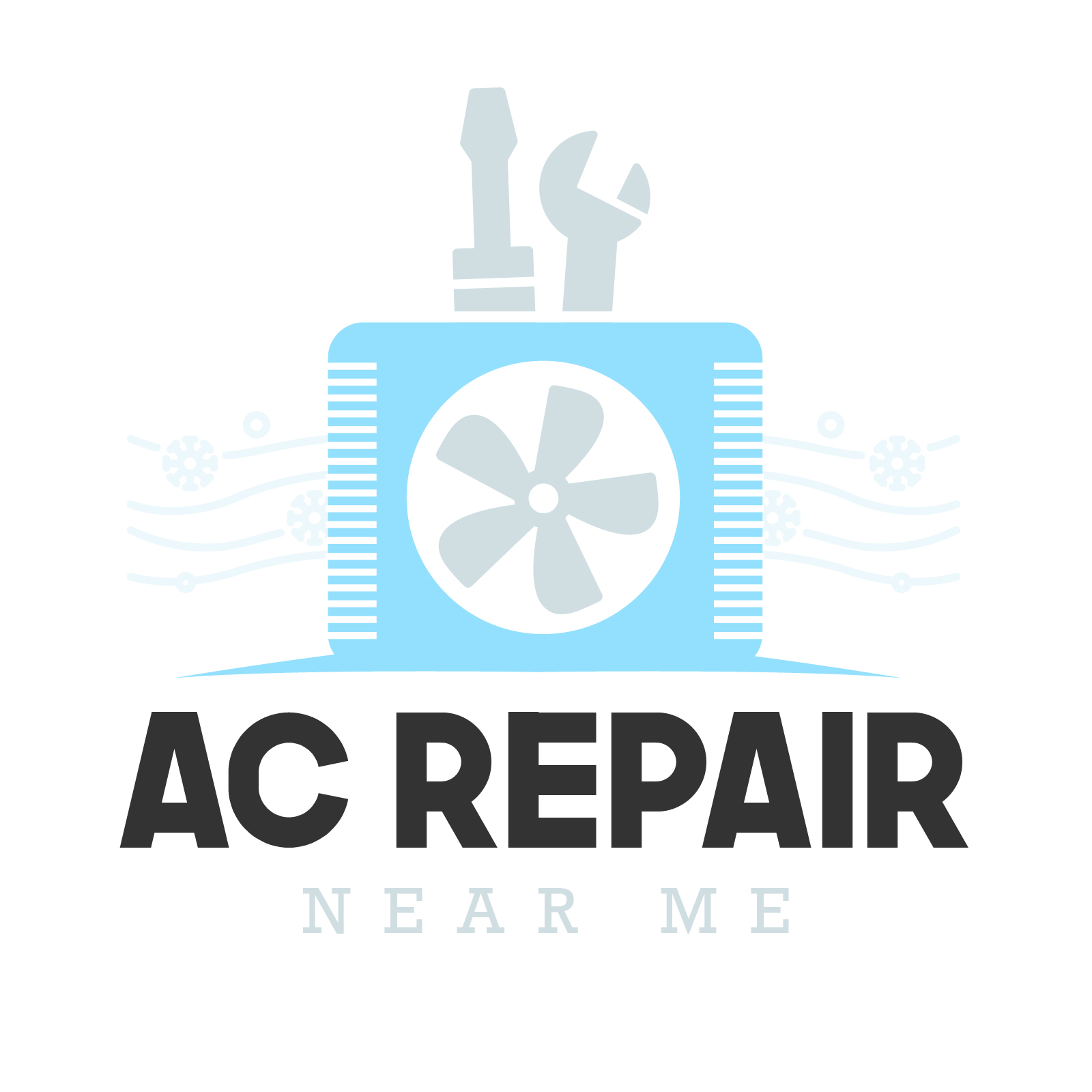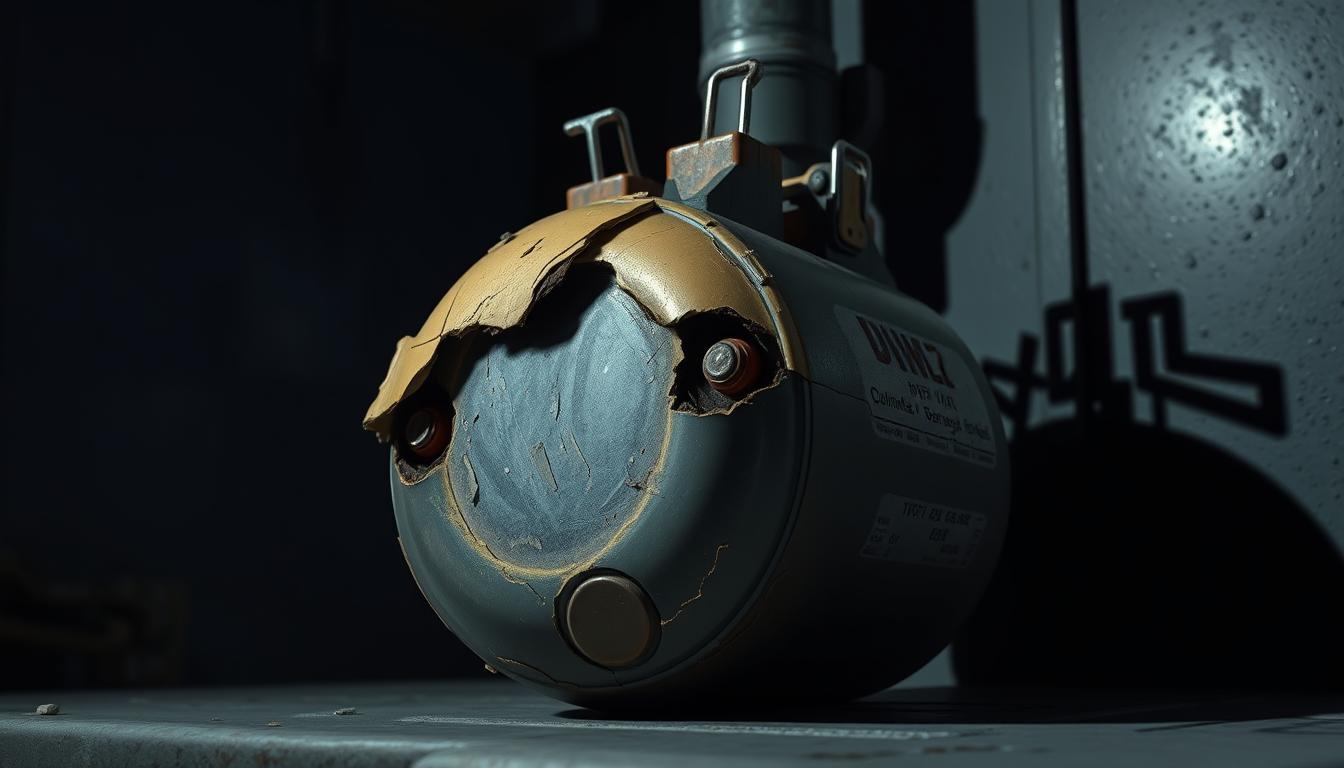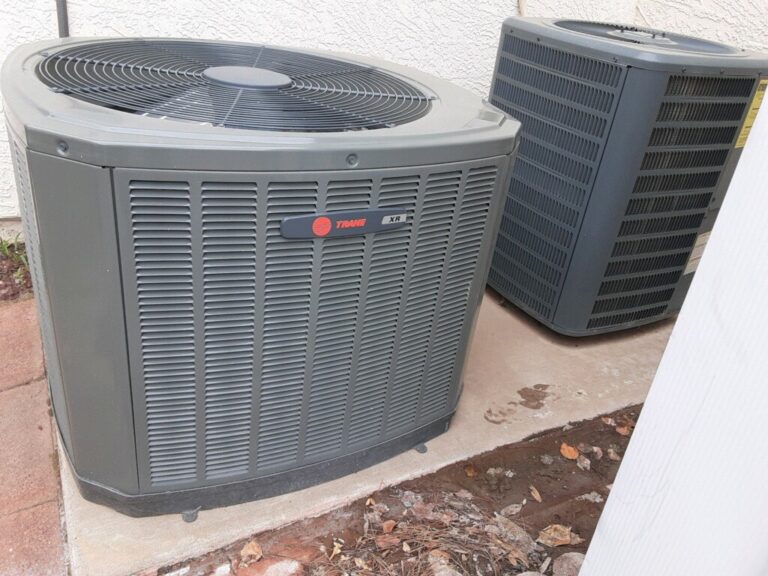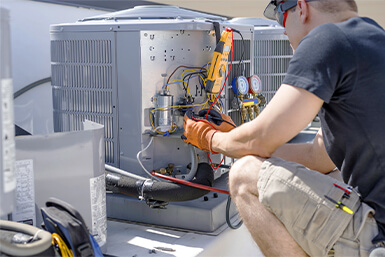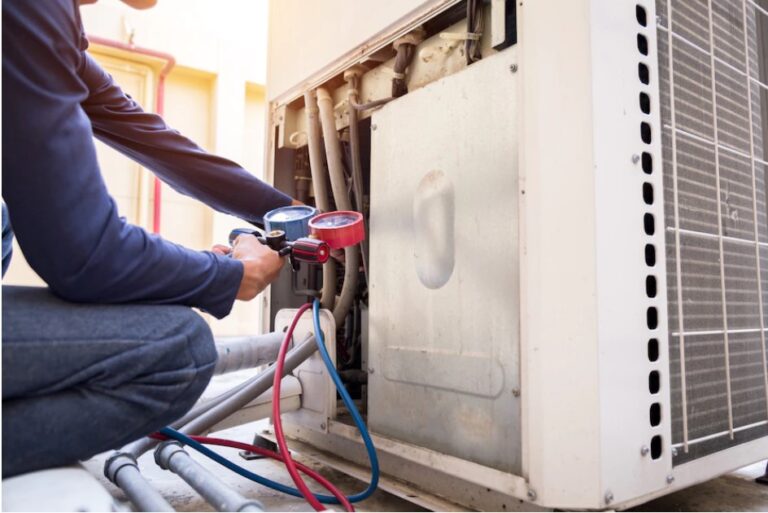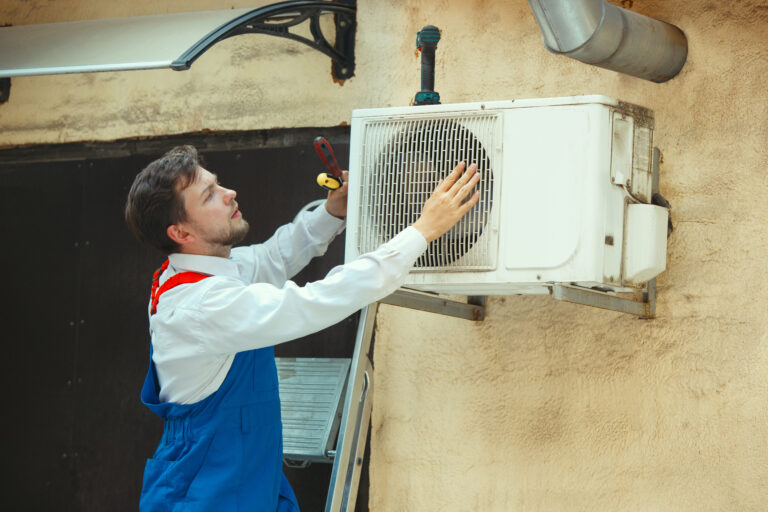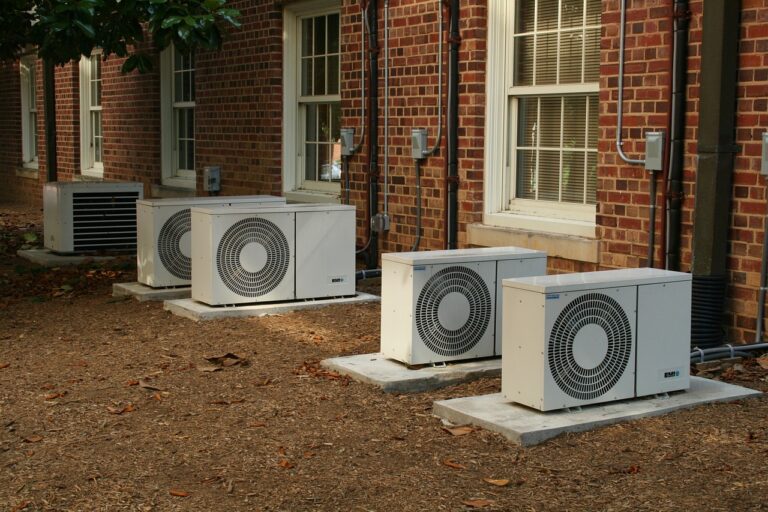7 Signs Your HVAC Capacitor Is Failing (And What to Do About It)
A functioning capacitor is crucial for maintaining home comfort and ensuring the efficiency of your air conditioning system. The capacitor plays a vital role in providing the necessary power to start the compressor and fan motors in your air conditioner unit.
Capacitor issues are more common than you might think, and being aware of the signs can save you from costly repairs and prevent more serious damage to your air conditioning system. By identifying these issues early, you can take proactive steps to address them before they lead to a complete breakdown.
This article will guide you through the 7 key signs that indicate your capacitor is failing and provide insights into what you can do about it. Understanding these symptoms will not only help you diagnose potential problems but also enable you to communicate more effectively with HVAC professionals.
Key Takeaways
- Recognize the importance of a functioning capacitor for your air conditioning system.
- Understand the critical role of a capacitor in your air conditioner unit.
- Identify common signs of capacitor failure to prevent system damage.
- Learn how to diagnose capacitor issues before they lead to complete system breakdown.
- Discover ways to communicate effectively with HVAC professionals about capacitor problems.
What Is an HVAC Capacitor and Why Is It Important?
Understanding the role of an HVAC capacitor is crucial for maintaining your air conditioning system. The capacitor is a vital component that ensures your system operates efficiently and effectively.
“Capacitors are the unsung heroes of HVAC systems,” as they provide the necessary boost to start the compressor and fan motors. Without a functioning capacitor, your system would struggle to operate, leading to increased energy consumption and wear on the components.
The Role of Capacitors in Your Air Conditioning System
The capacitor acts as a battery, storing energy and releasing it when needed to help power the system. It provides the initial jolt of electricity required to start the compressor and fan motors, allowing them to overcome inertia and begin operating smoothly.
Types of HVAC Capacitors: Start vs. Run Capacitors
There are two primary types of capacitors used in HVAC systems: start capacitors and run capacitors. Start capacitors provide the initial boost to start the motors, while run capacitors help maintain motor operation, ensuring the system runs smoothly and efficiently.
Common HVAC Capacitor Failure Symptoms to Watch For
Capacitor problems in your HVAC system often reveal themselves through multiple symptoms. Recognizing these signs early can prevent complete system failure during extreme weather conditions. Some common indicators of a failing HVAC capacitor include warm air blowing from your vents, unusual noises or burning smells from the outdoor unit, and unusually high electric bills.
Multiple symptoms often appear simultaneously, making diagnosis easier. The severity of these symptoms can vary depending on whether the capacitor is partially or completely failed. Seasonal changes and increased system demand can make capacitor issues more apparent. It’s crucial to address these symptoms promptly to avoid further complications.
As “a failing capacitor can lead to significant issues with your air conditioning system”, it’s essential to be aware of the signs and take action. Ignoring these symptoms can result in costly repairs or even complete system failure.
Sign #1: Your AC Unit Won’t Turn On or Has Delayed Starting
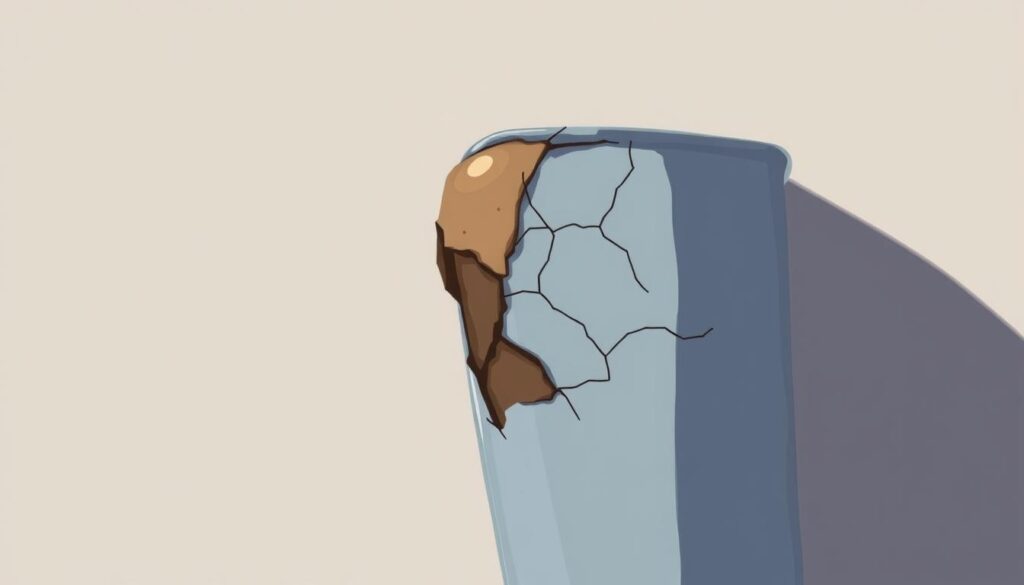
If your air conditioning unit is slow to start or refuses to turn on, it could be a clear indication of a failing capacitor. The capacitor plays a crucial role in providing the initial electrical boost necessary for the compressor and fan motors to start.
Why Capacitor Issues Prevent System Startup
A failing capacitor can prevent your air conditioner from starting because it cannot supply the required power surge to initiate the compressor and fan operation. When the capacitor is weak or failing, it may not provide enough power, leading to delayed or failed startups. This is because the capacitor’s role is to store energy and release it quickly to start the motors.
Distinguishing Capacitor Problems from Other Starting Issues
To determine if the capacitor is the cause of the startup issue, you need to consider other potential causes such as thermostat malfunctions or power supply problems. A faulty thermostat might not signal the AC to turn on, while power supply issues could prevent the system from receiving the necessary voltage to operate.
Observing the symptoms carefully can help. For instance, if the AC unit hums but doesn’t start, it could indicate a capacitor issue. In contrast, a thermostat problem might result in the AC not turning on at all, without any humming noise.
Sign #2: Strange Noises Coming from Your Outdoor Unit
One of the most telling signs of a failing HVAC capacitor is the presence of unusual noises emanating from your outdoor unit. These sounds can vary and are often indicative of the capacitor‘s deteriorating condition.
Identifying Capacitor-Related Humming and Clicking Sounds
A damaged or worn-out capacitor can cause the compressor to work harder, leading to a humming noise from the condenser unit. To diagnose, try turning the AC unit off and on once. If the humming continues, it’s likely related to the capacitor. Other sounds like buzzing and clicking can also indicate capacitor issues.
When Noise Indicates Serious Capacitor Damage
As the capacitor fails, the noise can become more pronounced and persistent. Ignoring these sounds can lead to more severe problems, including complete system failure. It’s crucial to address unusual noises promptly, as they often signal electrical issues within the air conditioner system. A bad capacitor can cause significant damage if not replaced.
Sign #3: Your AC Blows Warm Air or Provides Weak Cooling
A malfunctioning capacitor can cause your air conditioner to blow warm air or provide inadequate cooling. This issue occurs because the capacitor plays a crucial role in the functioning of the compressor and fan motors in your air conditioning system.
How Failing Capacitors Affect Cooling Performance
When a capacitor begins to fail, it can disrupt the normal operation of your air conditioner’s compressor. The compressor is essential for circulating refrigerant and cooling the air. If the compressor doesn’t start or run properly due to capacitor issues, your air conditioner won’t be able to cool your home effectively. As a result, you might notice warm air blowing from your vents.
Troubleshooting Cooling Issues Related to Capacitors
To determine if a failing capacitor is causing your cooling issues, you should check if the fan is running while the compressor isn’t. This discrepancy can indicate capacitor failure. Additionally, inspect the airflow and temperature differences between the supply and return vents. A significant difference might suggest that the capacitor is not the primary issue. However, if you notice that your air conditioner is running but not cooling, it’s essential to have a professional inspect the capacitor and other components to diagnose the problem accurately.
“Continuing to operate your air conditioner with a failing capacitor can lead to additional damage to other components and increase your energy bills.” Therefore, addressing capacitor issues promptly is crucial for maintaining your system’s efficiency and prolonging its lifespan.
Sign #4: Your Air Conditioner Frequently Shuts Off Unexpectedly
When your air conditioner frequently shuts off unexpectedly, it may be a sign of a failing capacitor. This issue is often referred to as short cycling, where the air conditioner turns on and off repeatedly in a short period.
The Connection Between Short Cycling and Capacitor Problems
Short cycling is closely related to capacitor failure. When a faulty capacitor cannot maintain the proper electrical charge, it disrupts the normal operation of the air conditioner, causing it to shut down unexpectedly. This sequence of events can lead to a vicious cycle of frequent startups and shutdowns.
- A failing capacitor causes the system to struggle with maintaining the necessary electrical charge.
- This struggle leads to the air conditioner’s compressor and fan motors not receiving the power they need, resulting in shutdowns.
- The frequent cycling wastes energy and puts additional wear on the system’s components.
Impact on System Efficiency and Lifespan
The frequent shutdowns and startups not only waste energy but also significantly reduce the lifespan of the entire air conditioning system. By allowing short cycling to continue without addressing the capacitor issue, you risk causing long-term damage to your air conditioner.
Monitoring and documenting the pattern of shutdowns can help diagnose whether the issue is related to the capacitor or other problems. This symptom often appears alongside other signs of capacitor failure.
Sign #5: Burning Smell from Your Outdoor Condenser Unit
A burning smell emanating from your outdoor condenser unit is a serious red flag that shouldn’t be ignored. This symptom often indicates that your air conditioner capacitor is failing or has already failed. The capacitor plays a crucial role in powering your AC compressor, and when it malfunctions, it can lead to overheating and potentially dangerous situations.
What Causes Capacitor-Related Burning Odors
When a capacitor begins to fail, it can overheat, causing the internal components to degrade and produce a burning smell. This odor is often described as acrid or electrical. The overheating is usually a result of the capacitor’s inability to function correctly, leading to excessive electrical resistance and heat buildup. As the capacitor deteriorates, the smell can become more pronounced, signaling advanced deterioration that requires immediate attention.
Safety Concerns with Burning Electrical Components
The presence of a burning smell from your outdoor condenser unit poses significant safety risks. It can indicate that electrical components are overheating, which may lead to a fire if not addressed promptly. Homeowners should immediately turn off the power to the HVAC system at the circuit breaker or fuse box if they detect such an odor. It’s crucial to have a professional inspect and repair or replace the faulty capacitor and any damaged associated components to prevent further risks.
Sign #6: Rising Energy Bills Without Explanation
Unexplained increases in your energy bills could be a sign that your HVAC capacitor is failing. A capacitor plays a crucial role in the efficient operation of your air conditioning system.
How Failing Capacitors Increase Power Consumption
A failing capacitor can cause the compressor and fan motors to draw more power than usual, leading to increased energy consumption. This is because the capacitor is responsible for providing the necessary power to start the compressor.
When the capacitor is damaged, the compressor works overtime, resulting in higher energy bills. The direct relationship between capacitor performance and energy consumption is significant.
Calculating the Cost Impact of an Inefficient Capacitor
To estimate the cost impact, you can analyze your utility bills to identify patterns consistent with capacitor failure. Consider seasonal factors when evaluating energy usage increases.
A simple calculation method involves comparing your current energy bills with previous bills from the same season. A significant increase could indicate capacitor issues.
Sign #7: Visible Damage or Age-Related Wear
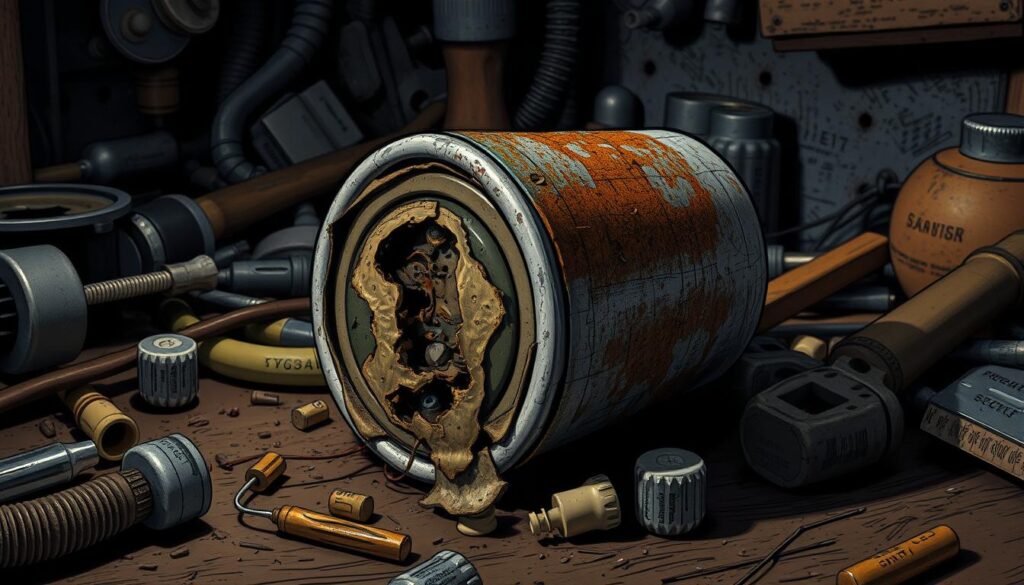
Visible damage or age-related wear is a clear indicator of a failing capacitor in your air conditioning system. Inspecting the capacitor for signs of physical damage can help you identify potential issues before they lead to system failure.
Physical Signs of Capacitor Failure
A healthy capacitor is typically cylindrical and smooth. In contrast, a failing capacitor may exhibit visible signs such as bulging, cracks, or fluid leakage. Rust or corrosion on the capacitor’s surface can also indicate damage. If you notice any of these signs during inspection, it’s essential to consider replacement to prevent further damage to your HVAC system.
Typical Lifespan of HVAC Capacitors
The lifespan of an HVAC capacitor can vary depending on several factors, including maintenance and environmental conditions. With regular maintenance, capacitors can last around 20 years. However, exposure to extreme temperatures, power fluctuations, and lack of maintenance can reduce their lifespan. Regular inspections can help identify potential issues early, ensuring your air conditioning system operates efficiently.
What Causes HVAC Capacitor Failure?
Understanding the causes of HVAC capacitor failure is crucial for maintaining the efficiency and longevity of your air conditioning system. A capacitor is an essential electrical component that stores and releases energy in an AC system, acting much like a battery to keep the system running smoothly.
Environmental Factors That Damage Capacitors
Environmental factors play a significant role in capacitor failure. High outdoor temperatures can lead to capacitor overheating, while poor ventilation and restricted airflow around the condenser unit can exacerbate the issue. Additionally, the buildup of dust and debris on components can cause the system to overheat, further damaging the capacitor.
The table below summarizes key environmental factors and their impact on capacitor lifespan:
| Environmental Factor | Impact on Capacitor |
|---|---|
| High Temperatures | Accelerates deterioration |
| Poor Ventilation | Increases risk of overheating |
| Dust and Debris | Causes system overheating |
Power Surges and Electrical Issues
Power surges and electrical issues are another primary cause of capacitor failure. Power surges and lightning strikes can damage the capacitor, causing it to overheat and fail prematurely. Moreover, improper voltage supply can affect capacitor performance and lifespan, leading to inefficient system operation.
Can Your AC Run with a Bad Capacitor?
While your HVAC system might still function with a bad capacitor, it’s not a situation to be taken lightly. The capacitor plays a crucial role in the operation of your air conditioner, and its failure can have significant consequences.
Operating with a failing capacitor can lead to various issues, affecting not just the capacitor itself but other components of your HVAC system as well.
Risks of Operating with a Failing Capacitor
Running your AC with a faulty capacitor poses several risks. It can cause the compressor and fan motors to work under strain, leading to potential overheating and failure. Moreover, a bad capacitor can lead to increased energy consumption and higher bills.
Potential Damage to Other HVAC Components
A failing capacitor can also cause damage to other critical components of your air conditioner, including the control board. If not addressed, this can result in costly repairs or even require a complete system replacement. It’s essential to have a professional evaluate and replace the capacitor to prevent further damage.
How HVAC Professionals Diagnose Capacitor Problems
HVAC technicians use a variety of methods to diagnose capacitor issues, ensuring accurate identification of the problem. Diagnosing a bad AC capacitor is relatively straightforward for a trained technician.
Testing Methods Used by Technicians
Technicians employ specific tools and equipment for accurate capacitor testing. A multimeter is used to test the voltage rating across the capacitor terminals. If the voltage reading is too low, the capacitor is likely defective and needs replacement.
Visual Inspection vs. Electrical Testing
Visual inspection is a crucial step in diagnosing capacitor failure. Technicians look for signs such as bulging, cracks, and fluids leaking from the casing. Electrical testing, on the other hand, involves measuring capacitance values against manufacturer specifications to confirm the diagnosis.
By combining both visual inspection and electrical testing, technicians can accurately diagnose capacitor problems and determine the correct replacement specifications, ensuring the right solution is implemented the first time.
DIY vs. Professional Capacitor Replacement
When it comes to replacing an HVAC capacitor, homeowners often face a dilemma: should they attempt a DIY replacement or hire a professional? Replacing a capacitor can be a relatively straightforward process for an experienced HVAC technician, typically taking less than an hour to complete.
The process involves identifying the defective capacitor, disconnecting it from the system, removing the mounting bracket and wires, and then installing a new capacitor in its place. However, this simplicity belies the complexity of ensuring the replacement is done safely and correctly.
Safety Considerations for Capacitor Handling
Handling capacitors poses significant safety risks, primarily due to the potential for electrical shock. Capacitors store electrical energy, and if not properly discharged before handling, they can deliver a dangerous shock. It is crucial to discharge the capacitor before attempting any replacement. This requires specific knowledge and tools, highlighting the importance of safety considerations in DIY capacitor replacement.
When to Attempt Replacement Yourself
While professional service is generally recommended for capacitor replacement, experienced homeowners or DIYers might consider attempting it under certain conditions. If you have experience working with electrical systems and understand the risks involved, you might be able to replace a capacitor yourself. However, it’s essential to ensure you have the correct replacement capacitor and follow proper safety protocols.
| Consideration | DIY Replacement | Professional Service |
|---|---|---|
| Safety Risk | High | Low |
| Cost | Lower upfront cost | Higher upfront cost |
| Expertise Required | High level of electrical knowledge | Professional training and experience |
As shown in the table, while DIY replacement may seem cost-effective, the safety risks and required expertise make professional service the recommended choice for most homeowners.
When to Call the Professionals for Your HVAC Needs
If you’re experiencing any of the 7 signs of HVAC capacitor failure, it’s time to consider professional assistance. A faulty capacitor can lead to more significant issues with your air conditioning system, including decreased efficiency and potentially causing damage to other components.
The Williams Comfort Air team is here to help with capacitor replacement and other HVAC services. Our professionals can diagnose the issue accurately, provide a suitable replacement if needed, and ensure your system runs smoothly. By choosing professional service, you not only ensure a proper diagnosis but also benefit from warranty protection and potentially extended system longevity.
For residents in Indianapolis needing air conditioner repair, we offer quality service at an affordable price. Contact us today to schedule a repair appointment and keep your home cool during the hot summer months.
